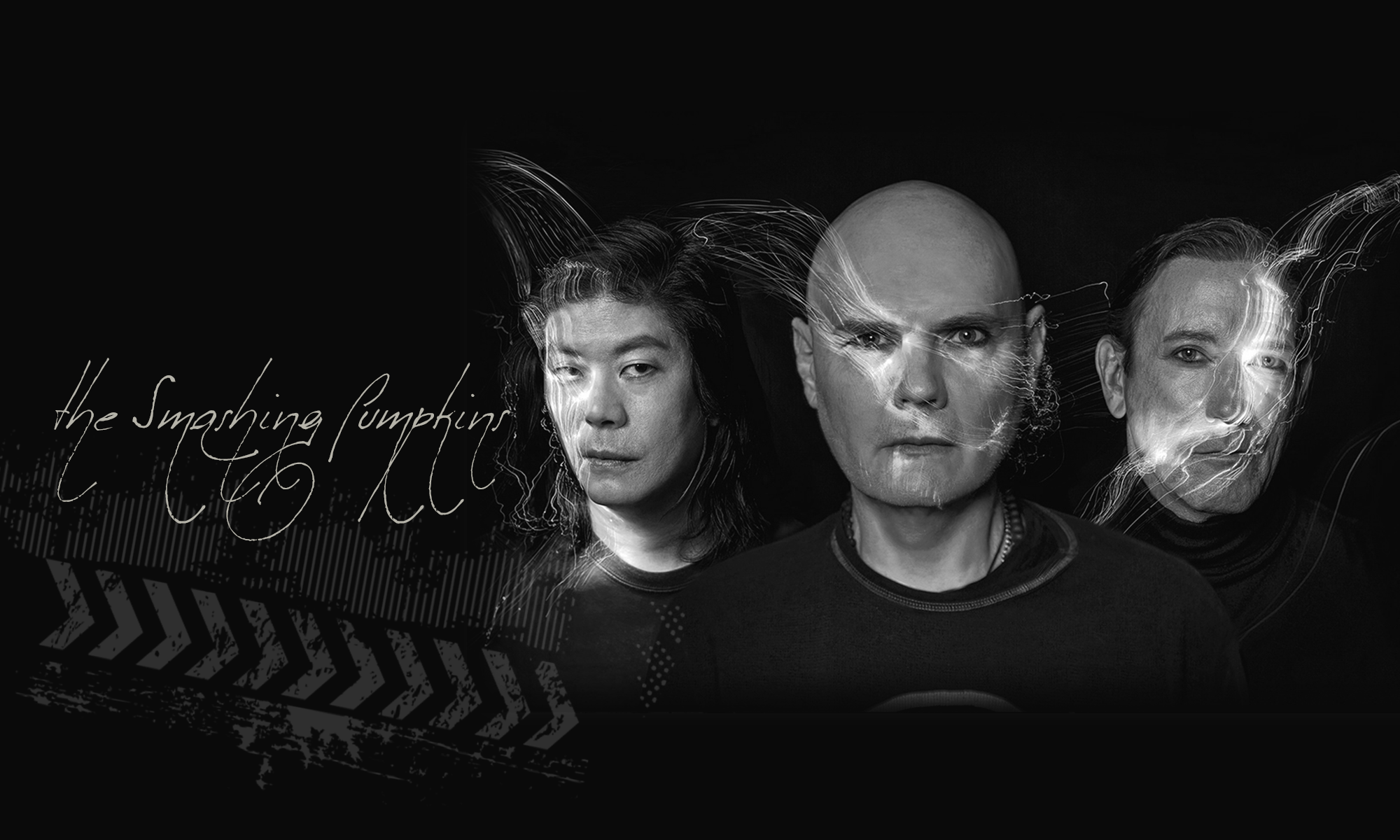アメリカの楽器チェーン店Guitar CenterのフリーコンピレーションCDに”Superchrist”が収録されるのに合わせて(CDの配付は現地時間で3月1日より。Guitar Centerの各店舗で配布中)Guitar Centerのサイトにビリー・コーガンとジミー・チェンバレンへのインタビュー記事が記載されています。コチラから。
音楽ビジネスについての真面目な話からはじまるこのインタビューは非常に興味深く、ビリーはMySpaceのようなSNSサイトが一般的になった事で、レコード会社や他人を介さずとも、また作品が良いものでも悪いものでも、自由に自分達の作品(音楽)を発表する場ができたことに魅力を感じているようす。また、ビリーはそうした新たな音楽シーンから生まれる若いアーティスト達に先駆けて、新しい音楽配信方法にチャレンジしていこうと考えているようです。
お金儲けの為だけに音楽を扱っている業界の人々よりも、世の中に溢れている沢山の選択肢の中から素晴らしい音楽を探そうとしている一般のリスナー達の反応こそがリアルなマーケティングであり、また、今回のようにGuitar CenterフリーコンピレーションCDに自分達の未発表曲”Super Christ”を収録することは、より若い世代に魅力的な素材を提供できる機会であるとビリーは語っています。
そして、子供達がこのCDの収録曲”Super Christ”を聴く事で、バンドがどんな楽器を使ってこういうサウンドを作っているのかに興味を持ち、楽器を手にするようになれば、それは自分達にとっても刺激的な事だとバンドのドラマーのジミーも答えています。
インタビュー後半では音楽制作についての質問により具体的に答えています。非常に魅力的な記事です。
原文は下記
Guitar Center met up with Billy Corgan and Jimmy Chamberlin at a hole-in-the-wall Chinese food joint in North Hollywood to talk about Smashing Pumpkins, Fresh Cuts Vol. 2, studio chops and how to make it big as a fresh, young band.
GC: You guys have seen some pretty dramatic shifts in the music business. What’s good and what’s bad about Smashing Pumpkins and the music business today?
Corgan: Well, I’d say the best thing is that we’re out of a label deal – totally free agents. We we’re just talking about how we’re going to start addressing our artistic relationships with the world in a different manner because we don’t have to go through some parental structure of “we don’t like it and it’s not going to sell” – you know? We’re excited about the prospects of sort of being our own business people in terms of how it interrelates business.
GC: Basically, you’re cutting out the middleman.
Corgan: And that’s the best part. I think in this world you don’t even need distribution. I mean, look, what’s great is, if you want to put out your shit for free on MySpace, you can. You don’t need anybody. You don’t need anybody inputting. And if it’s not MySpace, it would be somebody else, so.
GC: What insight can you offer a young act that needs to establish themselves without having the label marketing support, or having the knowledge of someone like yourself?
Corgan: Great music is still the best marketing. Word of mouth – I don’t care what peer-to-peer network you’re in, who’s distributing your stuff – word of mouth is still the ultimate thing. So at the end of the day, if you’re sitting on MySpace four hours a day adding friends, as opposed to four or more hours working on a song or getting your band to be really good, I still think you’re better off getting your band good. Practice.
GC: Guitar Center is giving away a free compilation CD in March with an exclusive Smashing Pumpkins track on it, Super Christ. It also features a lot of undiscovered acts that you guys helped select. How does a band like Smashing Pumpkins view this opportunity and how can this opportunity help up-and-coming bands?
Corgan: We see it as a great marketing opportunity for us. We’re about music and we’re about the more people hearing our music, the better. Plus it gives us a chance to hear some new stuff. We work so much and we’re so in our own little kind of self-contained world, we don’t get an opportunity to hear a lot of real underground stuff. For us it’s a cool opportunity to hear what’s going on in the non-mainstream, in the non-record label, big management world. Like, what are kids playing these days? Kids that work at Guitar Center, they’re that core of what it was like when we were kids.
Chamberlin: I mean, I didn’t work in a music store, but everybody I knew worked in a music store. We were dissecting records. We were really getting into it. And it’s like that’s where the music that Billy and I play today came from. It came from that completely obsessive nature, “What’s So-and-So playing? What kind of snare drum is he using? What kind of fuzz pedal?” It’s like those are the kids that, as adults, are going to make a difference someday because those are the people that are really into the nuts and bolts of making music. So that’s what’s exciting about it for us.
GC: Can you tell us a bit about the recording process for Super Christ? Where’d you track it, mix it, what gear was essential to producing it?
Corgan: We recorded it at Sunset Sound in Hollywood. There’re different rooms at Sunset Sound, but we worked in the one that Prince did Purple Rain in, on an old API board. We’d never recorded in there before. Drums sounded great in there, they’re really kind of dark but they got a lot of attack. Old basses. Actually, the bass I play on Super Christ, I bought at Guitar Center in Hollywood. It’s a ’58 Fender P-Bass.
GC: Did you guys write Super Christ during the Zeitgeist sessions or is it something that came after?
Corgan: We had the riff from the Zeitgeist sessions and we always knew that we wanted to do something with it, so once we got on tour we were like, okay, let’s go back to that.
GC: You guys have worked with many, many producers. How involved in the process of arrangements, tracking the song, producing, do you let someone come into your space to do that?
Corgan: Honestly, not so much anymore. And I don’t think it’s because we don’t want advice. We actually do want advice, but feel there are very few people that think about music the way we do. And I know that sounds incredibly pretentious, but we have a sort of philosophy. It’s like it’s asking them to think about it a totally different way, and most producers these days, honestly, they’re Pro Tools producers. They don’t think in terms of getting a great band performance or getting a great band sound. They think in terms of creating this massive wall of sound. Doesn’t matter that the band can’t play those parts.
GC: Can you tell us a little bit about recording with Roy Thomas Baker? Were there parts of the process where you felt like you were being schooled?
Corgan: Every day.
Chamberlin: Unbelievable.
Corgan: It’s like going to a recording master class.
Chamberlin: The first night he mic’ed up the drum kit, he had 414s over the toms, literally over the toms about this close, about a half-inch away from the drum head, with cotton balls taped to the top so there wouldn’t be any cymbal bleeds from the top. Just mics everywhere, and literally, I played for about five minutes, and when I went to listen to it, it was the loudest thing I’d ever heard in my entire life.
Corgan: For example, let’s say you had a bass guitar. If you don’t really need the rumble at 100 Hz and it’s going to get in the way of the kick drum, he just dumps it. And he dumps it in a way that you don’t hear that it’s been dumped, but he clears a lot more space. And his whole argument is, see I can turn the bass up louder and now there’s still room for the kick drum. Well, he does that to everything. He carves stuff out.
GC: You guys worked with Alan Moulder and Flood on Melancholy And The Infinite Sadness, two great producers, two different producers. But the record is totally cohesive, how was that achieved?
Corgan: Oh, yeah. Flood’s incredible. Flood is a tremendous producer. Flood is very masterful with the sonics, but where he really shines is he’s a great idea person. And I don’t mean like he tells you, “Oh, put this chorus here.” It’s more like he can see an ambiance of the song that you don’t necessarily see and he would really fight with us – not negative a fight, just he would really kind of push us to say there’s another vibe here that you can get to. And I think you can see that when he’s worked with U2 as well. He kind of pushed them to get to a little bit of a tougher vibe. I think a perfect example on Melancholy is a song called By Starlight, where the original version, the band sort of – rehearsal version was very ’70s. It sounded like a sort of a sad song from the ’70s. And he really pushed us to make it darker and prettier and more atmospheric and more kind of Depeche Mode and nighttime-ish. And when I look back now I really appreciate it. The song was the same. He didn’t change anything about the song. He really pushed us to a higher level with the way that we thought about our music and I think if you look at the changes in our music since Melancholy, he had a profound effect on the way that we think about music.
GC: How important is that type of experimentation for a younger band that maybe hasn’t had that opportunity to be educated by someone like Flood to say, hey, take a couple of steps back to really look at how you’ve constructed this song.
Corgan: I think it’s also the Pro Tools problem. And what I mean by that is, people fix the atmospheric or emotional problems in a song with production. Flood wouldn’t save the song with production. He would force us to save the song with our playing and then we would produce it. Essentially what I would say is if you don’t have the right emotional base in a song, you can never produce it right. And that’s what he really taught us, was spend the time getting that exact right feeling so that, even when you play it on acoustic guitar, that feeling comes through. Even when you play it heavy, that feeling comes through. Once you have that feeling in your body, then you know what to do. Then the production is easy. And a lot of times, if you look at the Beatles, it doesn’t take a lot sonically to produce an atmosphere. You can produce an atmosphere actually with very little instrumentation. It’s oftentimes the way you play and the voicing of the instrument that’s key.
Check out more exclusive GC interviews

